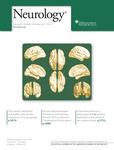A recent newspaper report caught my eye, and given my fledgling attempts to learn Telugu, it felt vaguely satisfying to read that Speaking a Second Language May Delay Dementia. But it was infinitely more satisfying to learn that the research that led to this finding was done (in part) at the UoH, in our very own CNCS, the Centre for Neural and Cognitive Sciences.
 Professor Bapiraju (of the School of Computer and Information Sciences and Coordinator of CNCS) wrote in to tell me that the article in the journal Neurology (the medical journal of the American Academy of Neurology) that went online yesterday was the product of collaboration among CNCS, NIMS and Osmania University, as part of a Cognitive Science Initiative project funded by the Department of Science and Technology. The full list of authors of the paper, Bilingualism delays age at onset of dementia, independent of education and immigration status, are Suvarna Alladi, Thomas H. Bak, Vasanta Duggirala, Bapiraju Surampudi, Mekala Shailaja, Anuj Kumar Shukla, Jaydip Ray Chaudhuri, and Subhash Kaul, Anuj Shukla being an M. Phil. student of the Centre, while the other authors are at NIMS, OU, and Edinburgh.
Professor Bapiraju (of the School of Computer and Information Sciences and Coordinator of CNCS) wrote in to tell me that the article in the journal Neurology (the medical journal of the American Academy of Neurology) that went online yesterday was the product of collaboration among CNCS, NIMS and Osmania University, as part of a Cognitive Science Initiative project funded by the Department of Science and Technology. The full list of authors of the paper, Bilingualism delays age at onset of dementia, independent of education and immigration status, are Suvarna Alladi, Thomas H. Bak, Vasanta Duggirala, Bapiraju Surampudi, Mekala Shailaja, Anuj Kumar Shukla, Jaydip Ray Chaudhuri, and Subhash Kaul, Anuj Shukla being an M. Phil. student of the Centre, while the other authors are at NIMS, OU, and Edinburgh.
 The main features of the study, as summarized in the abstract to the paper read as follows: Overall, bilingual patients developed dementia 4.5 years later than the monolingual ones. A significant difference in age at onset was found across Alzheimer disease dementia as well as frontotemporal dementia and vascular dementia, and was also observed in illiterate patients. There was no additional benefit to speaking more than 2 languages. The bilingual effect on age at dementia onset was shown independently of other potential confounding factors such as education, sex, occupation, and urban vs rural dwelling of subjects.This is the largest study so far documenting a delayed onset of dementia in bilingual patients and the first one to show it separately in different dementia subtypes. It is the first study reporting a bilingual advantage in those who are illiterate, suggesting that education is not a sufficient explanation for the observed difference. The findings are interpreted in the context of the bilingual advantages in attention and executive functions.
The main features of the study, as summarized in the abstract to the paper read as follows: Overall, bilingual patients developed dementia 4.5 years later than the monolingual ones. A significant difference in age at onset was found across Alzheimer disease dementia as well as frontotemporal dementia and vascular dementia, and was also observed in illiterate patients. There was no additional benefit to speaking more than 2 languages. The bilingual effect on age at dementia onset was shown independently of other potential confounding factors such as education, sex, occupation, and urban vs rural dwelling of subjects.This is the largest study so far documenting a delayed onset of dementia in bilingual patients and the first one to show it separately in different dementia subtypes. It is the first study reporting a bilingual advantage in those who are illiterate, suggesting that education is not a sufficient explanation for the observed difference. The findings are interpreted in the context of the bilingual advantages in attention and executive functions.
![]() This work has captured the imagination of the entire world, it seems! A blog from Brazil says: Mais um motivo para falar inglês (ou espanhol, francês, esperanto…) namely Another reason to speak English (or Spanish, French, Esperanto…). Newspapers across the world have picked up the article, from the NEW YORK DAILY NEWS to the LA Times… Professor Huntington Potter, Director of the Alzheimer’s Disease Programs at the University of Colorado in Denver has been quoted as calling the study “very definitive” in an interview with MedPage Today. “The fact that this study was carried out in India where many people are illiterate … and still the benefit was seen, bolsters the idea that cognitive reserve can be acquired in the absence of formal schooling,” he said.
This work has captured the imagination of the entire world, it seems! A blog from Brazil says: Mais um motivo para falar inglês (ou espanhol, francês, esperanto…) namely Another reason to speak English (or Spanish, French, Esperanto…). Newspapers across the world have picked up the article, from the NEW YORK DAILY NEWS to the LA Times… Professor Huntington Potter, Director of the Alzheimer’s Disease Programs at the University of Colorado in Denver has been quoted as calling the study “very definitive” in an interview with MedPage Today. “The fact that this study was carried out in India where many people are illiterate … and still the benefit was seen, bolsters the idea that cognitive reserve can be acquired in the absence of formal schooling,” he said.
Heartening news. And also very heartening that this work was done in part at our University. What better way to underscore our belief in the importance of multidisciplinary effort! Je सोचता हूँ என்று நான் always అనుకుంటున్నాను!
